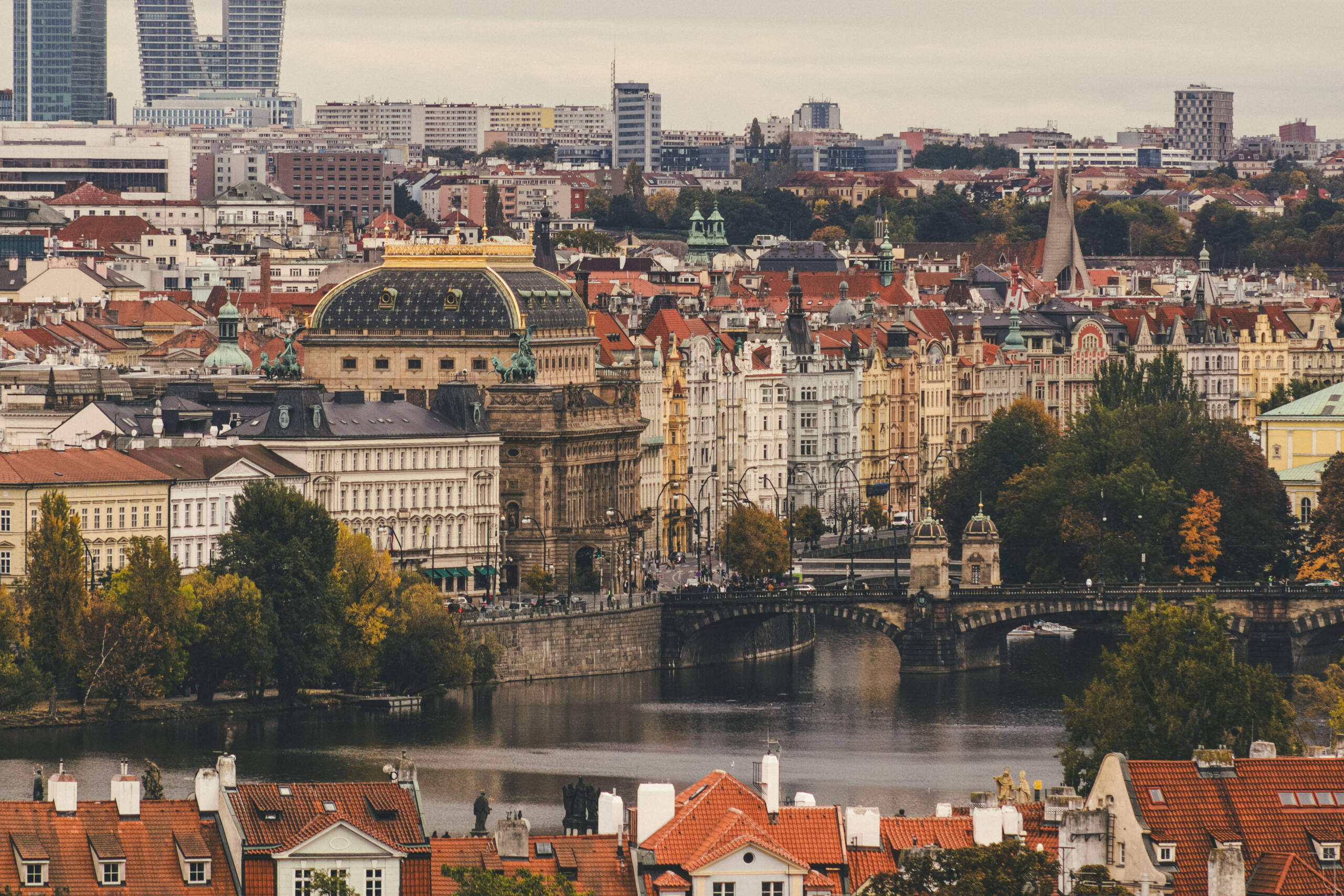There’s a certain gentleness to the city when you’re not rushing. You wake up in a hostel dorm — the sort with chipped paint, a bit of squeaky metal bunk frame, and maybe someone snoring softly in the corner — but it’s affordable, and that matters. In Prague, hostels run around $15–$25 a night if you’re not trying to stay in Old Town Square itself. You pick one just a little outside the historical core — Žižkov, Vinohrady, Holešovice — neighborhoods that have laundromats, cafés where locals actually go, and bars that don’t price beer like it’s jewelry. The hostel becomes your soft landing spot: a place where you make your own tea in the morning and maybe exchange a few nods with the other travelers who are also doing math in their heads about budgets and time.

Breakfast stays simple and local. A small bakery in Vinohrady will hand you a fresh rohlík or koláč for barely a handful of coins. You don’t need to sit down anywhere grand. Just take your pastry and wander toward the streets where trams rattle by with that old mechanical sighing sound. The city feels different when you’re not trying to “experience everything.” On $50 a day, you learn to observe instead of chase — and Prague rewards that. Its beauty doesn’t hide behind tickets or velvet ropes. The river doesn’t cost anything. The view from Letná Park is free. The narrow lanes behind Týnská Church feel like they belong to some smaller, older town that survived inside the metropolis like a fossil inside amber.
Lunch is where the magic happens. You’re living by the polední menu, the weekday lunch special. You walk slightly away from tourist gravity — two trams out, maybe — and the restaurants there will feed you for $6–$10 in a way that quiets your hunger for hours. Svíčková with dumplings, that sweet creamy sauce poured over slow-cooked meat; or a plate of fried cheese and potatoes that makes no attempt at being modern but makes your stomach very happy. The waiters in these places are often a little bit brisk and slightly amused at you, but it’s fine. They’ve seen generations of students, writers, dancers, drifters, travelers — you are just the latest.
The afternoon is for drifting. You can cross the river at Jirásek Bridge, follow the water all the way to Kampa Island where trees lean over the riverbanks like they’re tired but refusing to fall. You climb up to Prague Castle but don’t bother paying for anything — the courtyards are free, the steps are free, the city rolling out below is free. There’s a kind of quiet pride in just being there, without buying your presence. You sit on the stone wall, nursing a cheap bottle of mineral water or maybe a beer if you’re feeling slightly celebratory. The breeze smells like history and bakery warm air mixed with the faint scent of river algae.
Dinner becomes your supermarket ritual. Albert or Lidl or Billa. Bread, cheese, maybe a tin of something, tomatoes when they look good. For maybe $5–$8 you build a meal that feels simple and surprisingly satisfying when eaten by the riverside. It’s funny how a city becomes yours when you carve out little corners for yourself. The embankment at Náplavka in the soft golden hour is the real dining room of Prague. People sit on the stone walls, couples laugh, someone’s playing a guitar badly but with feeling, and everything feels allowed.
By night you walk or take the tram — a single ticket or a day pass if you know you’ll be moving more. Trams at night feel like being inside a memory before it’s even happened. You get off somewhere near your hostel, maybe stop for one last beer at a neighborhood pub where the bartender doesn’t look shocked that you ordered just one drink. Then you drift back to your dorm bed, the frame creaking slightly as you climb in, your bag tucked close, your mind full.
Living on $50 a day in Prague doesn’t feel like you’re scraping by. It feels like you’ve stepped onto a quieter frequency of the city, the one locals live on. The version without urgency. The version that lets you take small bites of everything without needing to own any of it. And honestly, some trips stay in your memory longer because of the restraint, not in spite of it.
Leave a Reply